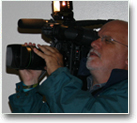 Kids Learn Real Crime Scene Investigation Skills in DNA Forensics Summer Camp at Trent UniversityFOR IMMEDIATE RELEASE High School Campers Will Have Opportunity to Thursday, June 14, 2007, Peterborough Campers planning to attend this year’s DNA Forensic Summer Camp at Trent University will enjoy a dynamic line-up of new activities designed to introduce them to crime scene investigation techniques. “This camp continues to be immensely popular with high-school-aged kids,” explains Professor Chris Kyle, director of the DNA Forensics summer camp program. “The strength of Trent’s DNA Forensics Summer Camp is that kids get to learn from real forensic practitioners including an authentic DNA lab environment featuring the latest DNA technology.” Participants will learn how DNA technology is used to solve crimes, and hear about other techniques used in law enforcement. A highlight of the camp is the opportunity for campers to use their skills to investigate a simulated crime scene, culminating in a mock trial where they present and defend the evidence they collected. This year’s camp will feature new crime scenes for both a wildlife case and a human case. “The cases and crime scenes are based on murders, poaching, illegal commercialization of animal parts, paternity questions, genetically modified food and other timely topics,” explains Prof. Kyle. The learning framework – group-directed problem solving – involves familiarizing students with a variety of cases presented in the form of crime scenes or case modules. In solving the cases, students access resources such as DNA analyses and learn from professionals in law enforcement. Many of the activities will take place in the new DNA Building that opened at Trent in October 2006. This state-of-the-art facility features an automation lab for DNA processing, forensic teaching labs, and specialized equipment for the preparation and analysis of genetic material. This is the same technology used by Trent researchers last year when handling evidence from real cases involving illegally imported products from endangered species, such as caviar from threatened sturgeon from the Caspian Sea and monkey skin rugs from Ethiopia. The DNA Forensics Camp runs both a day camp option for local residents, and a residential camp, including accommodation, food, 24-hour supervision, activities and entertainment. Registration fees for the day camp are $250 per camper, and $750 each for the residential camp. This year’s camp will run on the following dates: July 8-13 All programs and accommodation are provided on campus at Trent University. Registration Information: To register, or for further information, please visit www.nrdpfc.ca, email or call (705) 748-1011 ext. 7884. -30- For further details, please contact Professor Chris Kyle at (705) 748-1011 ext. 705 |
































